Director: Derek Yee
Producer: Tsui Hark
Cast: Kenny Lin Geng-Xin, Peter Ho Yun-Tung, Jiang Yi-Yan, Jiang Meng-Jie, Norman Chu, Edward Ku, Ng Yuen-Jun, Wang De-Shun, Guo Jiu-Long
Running Time: 105 min.
By Paul Bramhall
There have been a handful of Shaw Brothers re-makes over recent years. Some of them have resulted in successful reinterpretations of the source material, such as Daniel Lee’s 2010 production 14 Blades, a pulpy re-imagining of Secret Service of the Imperial Court, and Peter Chan’s Wu Xia from 2011, which took its inspiration from One Armed Swordsman. Of course others have arguably missed the mark completely, most notably Andrew Lau’s 2012 jumbled effort The Guillotines, which was based on The Flying Guillotine. However no one has been bold enough to take on one of the many Chor Yuen directed productions, usually based on writer Gu Long’s novels set in the martial arts world. No one that is, until the arrival of Sword Master.
Based on 1977’s Death Duel, the man stepping up to the daunting task of remaking such a well-known classic, is in fact the star of the original, Derek Yee. While many modern day audiences know Yee as the director behind such gritty slices of Hong Kong cinema as One Night in Mongkok, Protégé, and The Shinjuku Incident, it’s important to remember that he was also very much an active player in the Shaw Brothers studio. When director Chor Yuen went through his phase of adapting Gu Long novels from the mid-70’s to the early 80’s, Yee was a regular sight in many of them, even playing the lead in the likes of Full Moon Scimitar and Descendant of the Sun.
Sword Master marks the first time both for Yee to attempt a remake, and his first foray into the wuxia genre, however the production definitely comes with the right talents behind the camera. In the producers chair is Tsui Hark, one of the few directors in the world who’s successfully found ways to innovatively use 3D technology during action sequences. Most likely due to Hark’s involvement, the action direction is in the capable hands of Yuen Bun and Dion Lam. Bun has frequently worked with Hark in recent years during his forays into 3D action filmmaking, and you can certainly see him honing his craft when witnessing the progression of the action in the likes of the Detective Dee series, through to the likes of The Taking of Tiger Mountain. He’s one of the few choreographers from the golden era who’s found peace with modern technology, and the same can be said for Dion Lam, who also handled the action in League of Gods, from the same year.
As far as plot goes, for anyone who is even vaguely familiar with the Shaw Brothers adaptions of Gu Long’s novels, you’ll know that things tend to get convoluted very quickly, while somehow still maintaining an acceptable level of coherency. That’s also the case here, so to avoid filling up the next 5 paragraphs with a plot synopsis, I’ll try and keep it short. Events open on a snow covered bridge spanning a frozen lake, as 2 swordsman face off against each other. It’s certainly difficult to think of a more appropriate way to kick off a wuxia movie. One of the swordsman is played by Peter Ho, sporting a tattooed face which almost makes him look like a wuxia version of The Crow, and his only desire is to be the best swordsman in the land, for which he needs to defeat the legendary Third Master.
The role of the Third Master is the character that Yee played in Death Duel almost 30 years prior, and here his shoes are filled by Kenny Lin, who’s left his identity behind and seeks a life of solitude, with his own family declaring him dead. The rumours of his death quickly circulate and throw the martial arts world into disarray, with his ambitious and power craving bride-to-be, played by Jiang Yi-Yan, demanding proof of his death. Away from the chaos, Lin takes on the job of an errand boy in a brothel, and while there begins to fall for the charms of a naïve prostitute, played by Jiang Meng-Jie. However when Lin is sighted by a former adversary, he has to deal with Ho’s fame seeking swordsman, a spurned bride-to-be, and threats from multiple clans that seek to overthrow his family as the leaders of the martial arts world.
For those who have seen Peter Chan’s Wu Xia, the above may sound familiar, as that movie concerned itself with Donnie Yen’s clan member who also gives up his identity for a peaceful life. However those comparisons really only hold up on paper, with Sword Master very much being a different type of production. Indeed out of all the recent Shaw Brothers remakes, it’s arguably Yee’s effort that recaptures the atmosphere of that era of filmmaking the most. In many scenes the surroundings are created by CGI, however the look and feel is not going for realism, just like the many studio bound sets of the Shaw Brothers could never be mistaken for a real outdoor setting. Instead they create a fantastical and mythical setting, one which provides an appropriate backdrop for the lonesome swordsmen and lovelorn swordswomen to muse on their fates and the meaning of it all.
Indeed the script for Sword Master could have come straight out of a Shaw Brothers wuxia. Characters whimsically dwell on what it means to be the best, reminisce on lost love, and deliver such wonderful lines like “I sharpen my blade on talkative men’s throats.” Both Yee and Hark penned the script, along with Chun Tim-Nam, who has worked with both directors before, penning the likes of Seven Swords and The Shinjuku Incident. The dialogue and story are arguably Sword Master’s biggest strengths, ensuring characters motivations and personalities are fully fleshed out, and notably drawing some surprising laughs from a sharp sense of wit occasionally on display.
Old school fans will no doubt appreciate the inclusion of Norman Chu as the father of Lin, which also makes him the only returning cast member from the original. At over 60 years old he cuts a commanding figure, and provides a welcome link to those movies that came before. For those who hope to see him in action, the good news is that he also throws in some slicing and dicing for good measure. While we’re on action, as mentioned previously the expectation that having Yuen Bun and Dion Lam on-board comes with thankfully doesn’t disappoint. Purists will no doubt cry foul at the CGI enhancements, however these are also likely the same purists who complain that the action in the Shaw Brothers wuxia’s is too flowery and stylised. Amongst the shots of flowing material and CGI projectiles, Bun and Lam have crafted some solid swordplay that delivers the goods.
When Norman Chu yells to “Get into formation!” It almost felt like it was the first time hearing this line in such a context since watching movies like Shaolin Intruders and The Emperor and his Brother. The merging of the old-school action style created with modern day filming techniques is never going to please everyone, however if this is the direction that wuxia action is going to take, then it stands as a worthy update and homage to what’s come before. From one-on-one sword duels, to clan vs. clan attacks using a variety of weapons, all of the action scenes are choreographed to a high level, with the performers moving both to avoid real weapons and CGI ones that would be added in post. To perform against an attack that’s not there, and then seamlessly carry on performing choreography against those that are there, is a skill in itself, and shouldn’t be written off as technology doing all the work.
All things considered, Sword Master isn’t just an imitation of the era its source material is from, instead Yee’s movie feels like a bold reimagining of how the wuxia genre can still work using modern technology. If the Shaw Brothers wuxia’s charmed with their sets and elaborate costumes, 90’s wuxia’s wowed with their elaborate wire work and set pieces, then wuxia from this era will hopefully be defined by its strong storytelling and CGI infused action. Let’s hope that for other filmmakers, Sword Master sets the bar.
Paul Bramhall’s Rating: 8.5/10

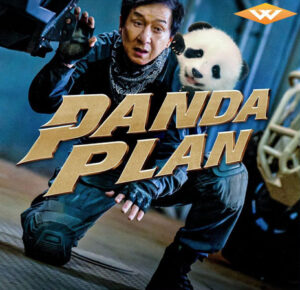

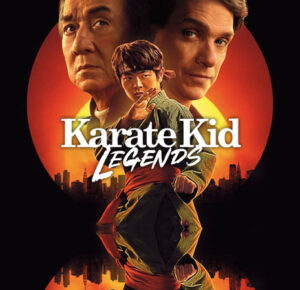

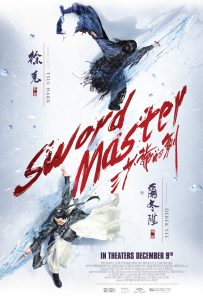
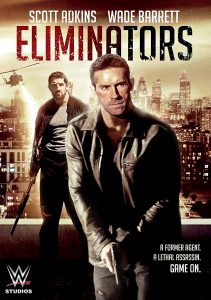
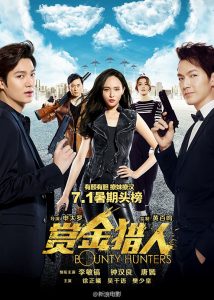
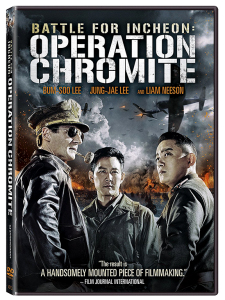

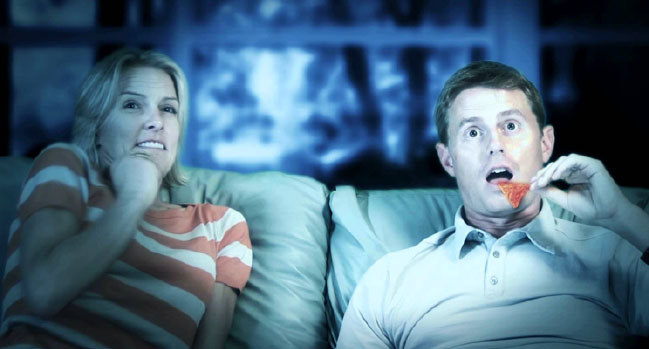
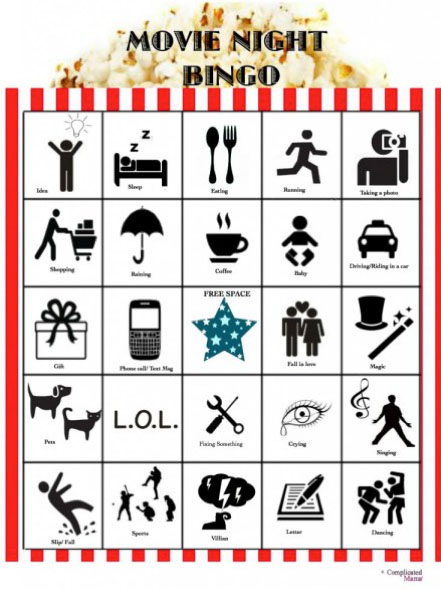
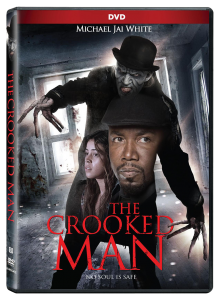
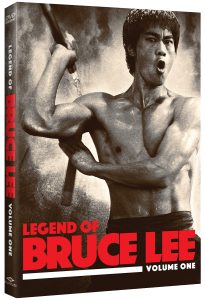
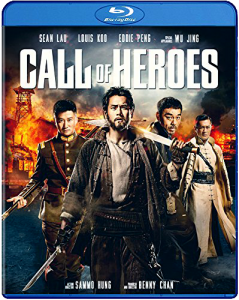

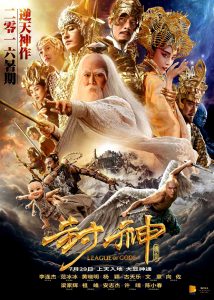

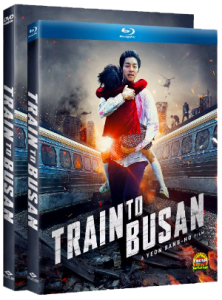
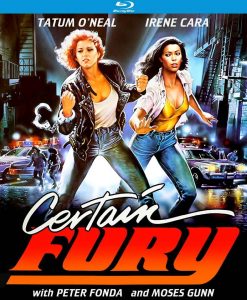



5 Comments